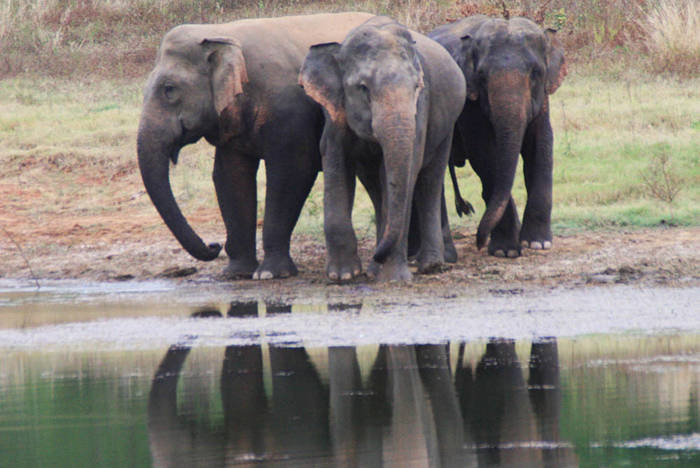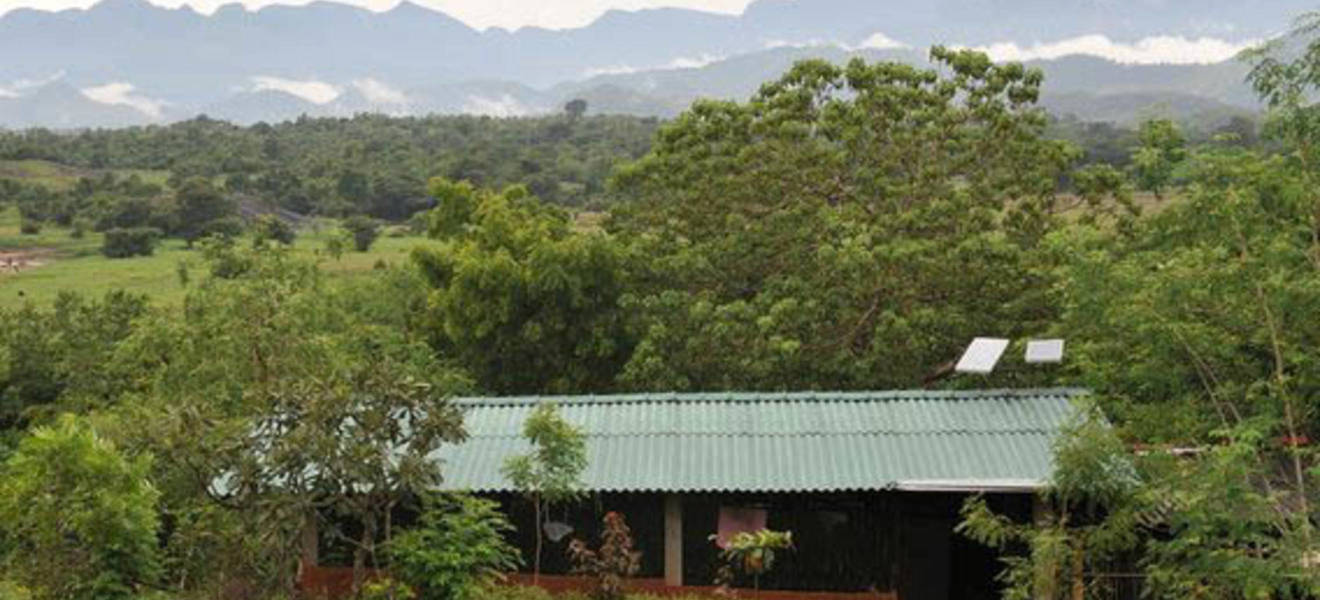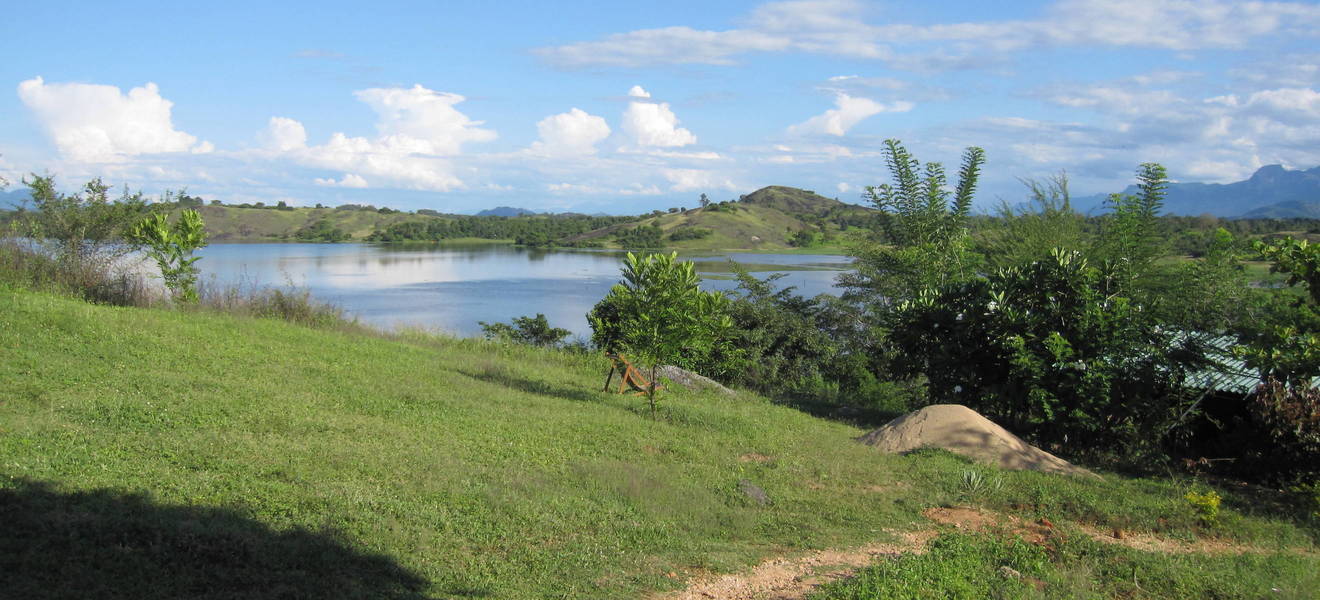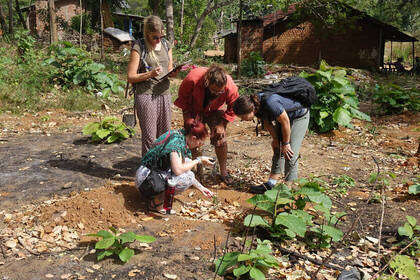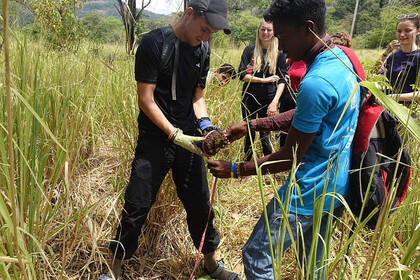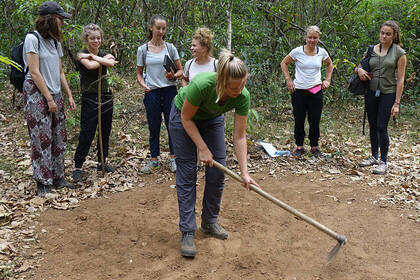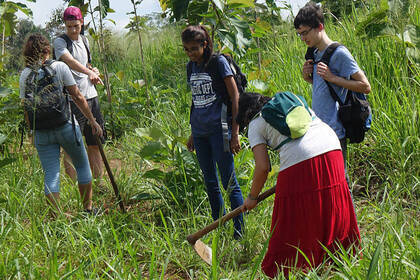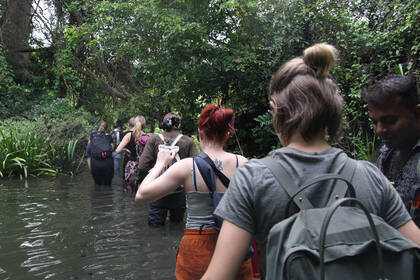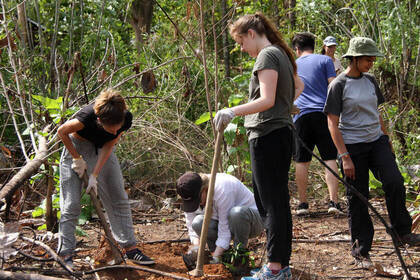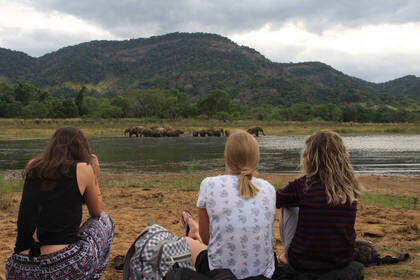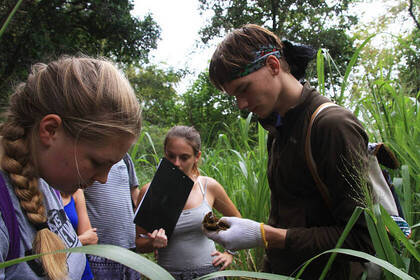Volunteer work in elephant project in Sri Lanka
- Right in the national park
- animals in the wild
- High learning value
Your heart beats for the elephants? Then get involved in our elephant project in Sri Lanka! In the national park you go on an observation tour and collect data about the pachyderms. You will also support the team in their educational work among the villagers. With your work you not only contribute a small part to the protection of the endangered elephants - you also take unforgettable impressions home with you!
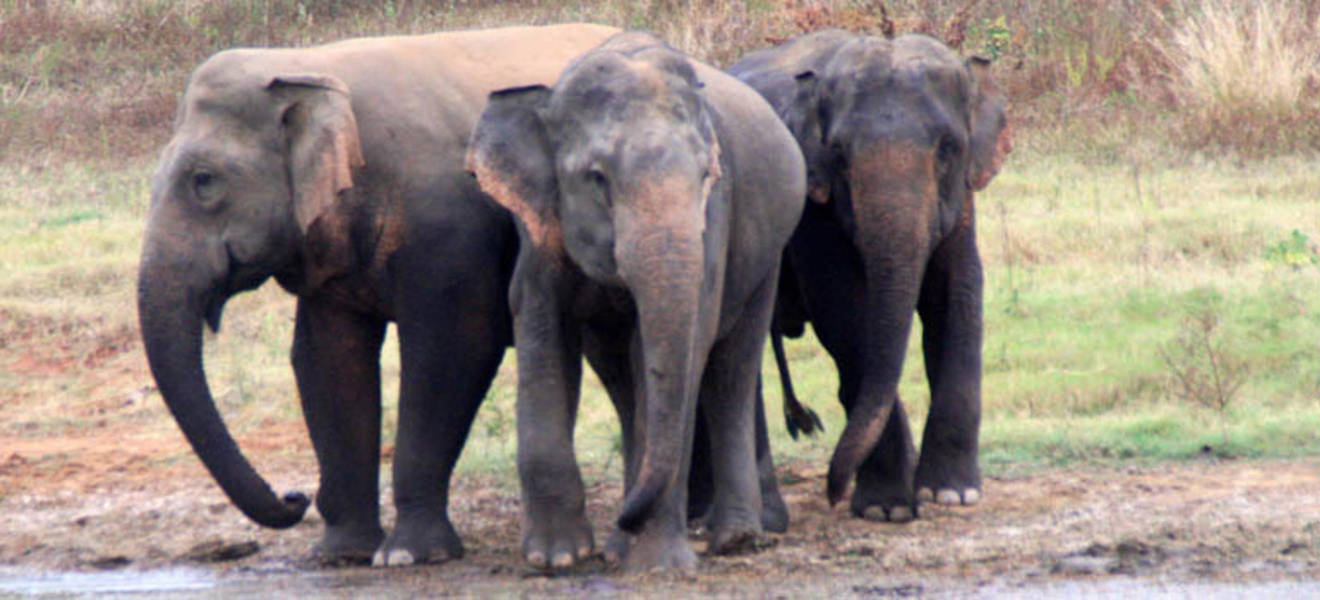
What's the matter?
Since the mid-1950s, the Sri Lankan elephant population has declined by at least half due to habitat loss. Despite everything, Sri Lanka is estimated to have the highest density of elephants in Asia. They are mostly at home in the dry zone in the north, east and south-east of the island. In addition to numerous tamed elephants, there are larger wild populations in Sri Lanka: an estimated 2500 to 4000 elephants still live in the wild.
Since the habitats of the animals are being cut further and further by settlement and field construction, irrigation projects, etc., tensions between the population and the pachyderms are increasing. The ivory trade is also a problem, but not the main threat to Sri Lankan elephants.
The Species Conservation Department of Sri Lanka has set itself the goal of protecting the elephant populations in as many suitable areas as possible. Protective measures should not only take effect in the national parks, but also outside of these zones - depending on how the land can feed the animals (an elephant eats an average of 150 kilos of plants per day) and how the landowners tolerate the elephants. In order to make the coexistence of humans and animals as problem-free as possible, the local population must be informed about the advantages of wildlife protection and involved in wildlife projects.
The employees also follow this protection strategy in our elephant project in the national park. Her animal observations, research and practical work go hand in hand with raising awareness of the local population for the topic of environmental protection and their involvement in the project.
Some residents are trained in the project and work side by side with their project colleagues. This cooperation shows the local population how important wildlife protection is in their region. They also learn to appreciate their homeland with its unique wildlife population.
Your tasks as a volunteer
Your tasks in the project are very diverse. For example, you carry out measurements and observations on the foraging and eating behavior of elephants. You will also check and repair - as far as possible - electric fences that are supposed to keep the elephants from trampling the fields. You will learn how to identify individual elephants at a waterhole and create an elephant ethogram (behavioural description) using photos and data. You will also go on safari with the other volunteers in the national park to observe elephants and collect data about them.
On a few days, you and a team member will visit the villagers: the residents will talk to you about their conflicts with the elephants and show you the damage the pachyderms have caused. School visits are also part of the program: together with the other volunteers, you will bring the children closer to the topic of environmental protection in a playful way.
You will normally work on the project from Monday to Friday. At 9 a.m. you drive to the site with the other volunteers in a jeep or pickup truck. Depending on the daily program, you carry out measurements and animal observations, check fences, talk to the villagers or teach school children.
You usually have a lunch break at the camp from 12:16 p.m. to 16:18 p.m. You can eat and relax with your colleagues. From XNUMX p.m. to XNUMX p.m. you are back on the premises. For example, you identify elephants and create behavioral descriptions. Or you go on safari to collect data on the elephants.
You will return to camp around 19pm. You clean the equipment and have dinner with your colleagues. Afterwards you can relax or drive back into the terrain and observe nocturnal animals on a road cruise. From 22 p.m. is night rest. You are generally free on the weekends.
Accommodation Catering
Guest house in Wasgamuwa
You live on the camp site in a cozy guest house that is pleasantly cool on hot days and dry during the rainy season. You sleep here in a shared room with comfortable beds, mosquito nets and fans. The house currently has nine bathrooms with western toilets, showers and sinks. Meals are freshly prepared every day. On request you can also get vegetarian or vegan food. You can drink tea or coffee around the clock, for example the world-famous Ceylon tea.
The camp is surrounded by nature, surrounded by hills and fields. You have the opportunity to do sports, go hiking or swimming in the nearby lake. The nearest town with shops is nine kilometers away. You can reach them by bus, car or tuk tuk. Before you leave the camp, however, you discuss your plans with a team member. For safety reasons, you are not allowed to walk alone in the national park.
Location
Wasgamuwa National Park
The Wasgamuwa National Park in the green heart of Sri Lanka is located in the provinces of Matale and Polonnaruwa, about 250 kilometers from Colombo. The name "Wasgamuwa" is composed of the Sinhala words "Walasa" ("sloths") and "Gamuwa" ("wood"). Due to its slightly isolated location, the park is not well developed touristy and therefore particularly interesting for nature lovers.
The Sri Lankan elephants live in large herds on almost 37.000 hectares in the Wasgamuwa National Park. With more than 140 bird species, the park is also an important bird sanctuary and home to water buffalo, monkeys, deer, sloth bears and a few leopards. Wasgamuwa is crossed by the rivers Mahanweli Ganga and River Amban Ganga and offers animals and plants with its river forests and water reservoirs a basis for life. The flora includes over 150 plant species, for example tamarind trees that are up to 1700 years old.
So if you like being in nature, discovering exciting places off the beaten track and have a heart for elephants, you will certainly like our location in the Wasgamuwa National Park!
On-site procedure
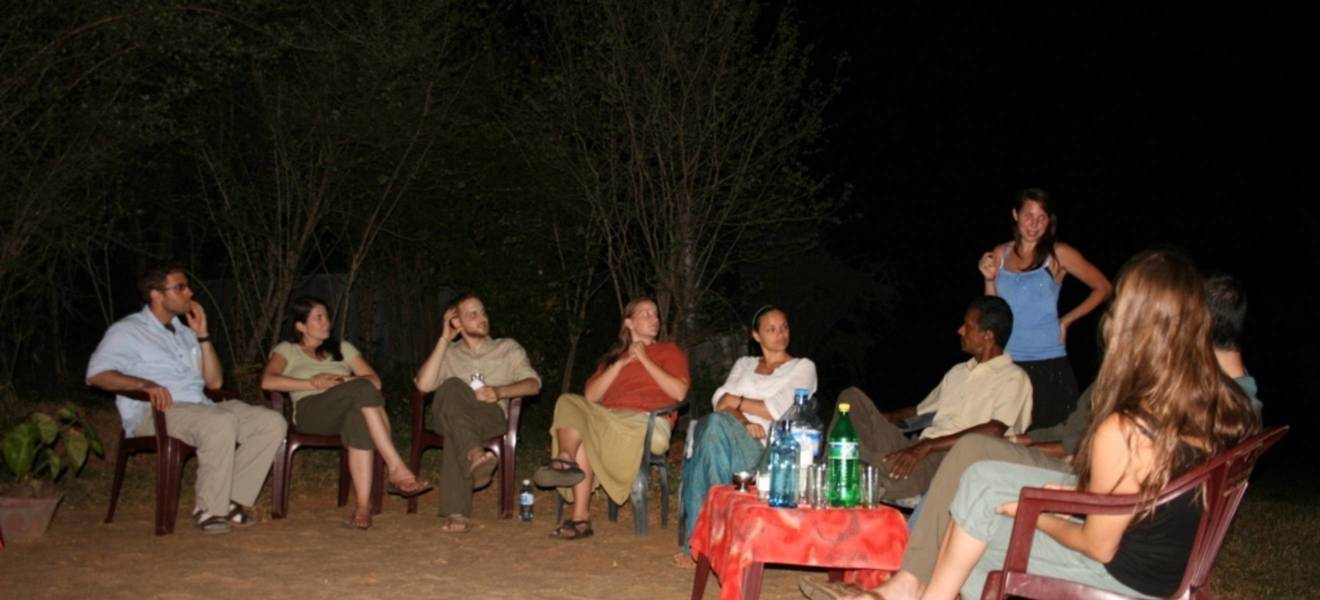
Arrival in Sri Lanka
The elephant project always starts on Mondays, which means you should arrive in Colombo, the capital of Sri Lanka, at least one day before. There you will be picked up by a team member and taken to a hotel in Ambepussa, where you will spend the first night.
A project employee will pick you up at your hotel early Monday morning and take you to the deployment site in the national park.
Travel to the project from Colombo is included. The return transport at the end of your stay is not included in the services. You can either travel by public transport or arrange private transport with the help of your team.
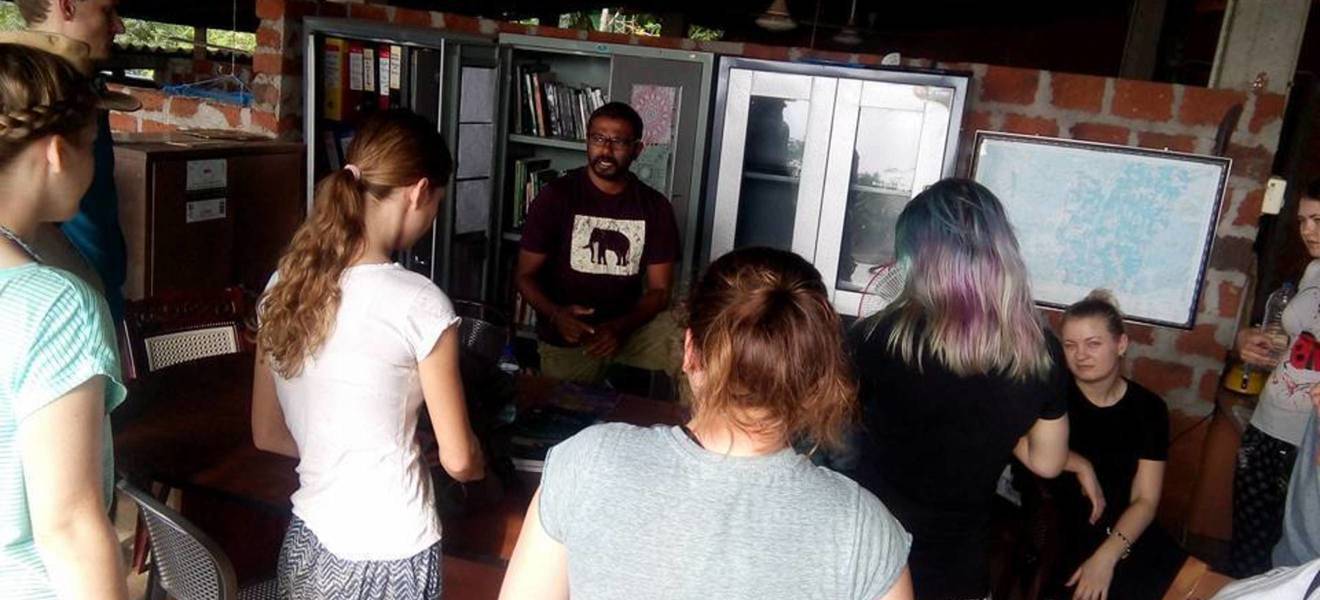
Orientation program in Sri Lanka
On Monday you will arrive in Wasgamuwa around noon. An employee will show you your room and you can freshen up. After lunch, the orientation program takes place. After the employees have reported on their work and the tasks in the project, they divide the volunteers into two groups. A group goes to the watering hole where the animals are observed. The volunteers learn what kind of photos and data can be used to identify the elephants and how to create an elephant ethogram.
The other group goes to the tree house. You will learn more about the conflicts between humans and elephants in a former elephant corridor.
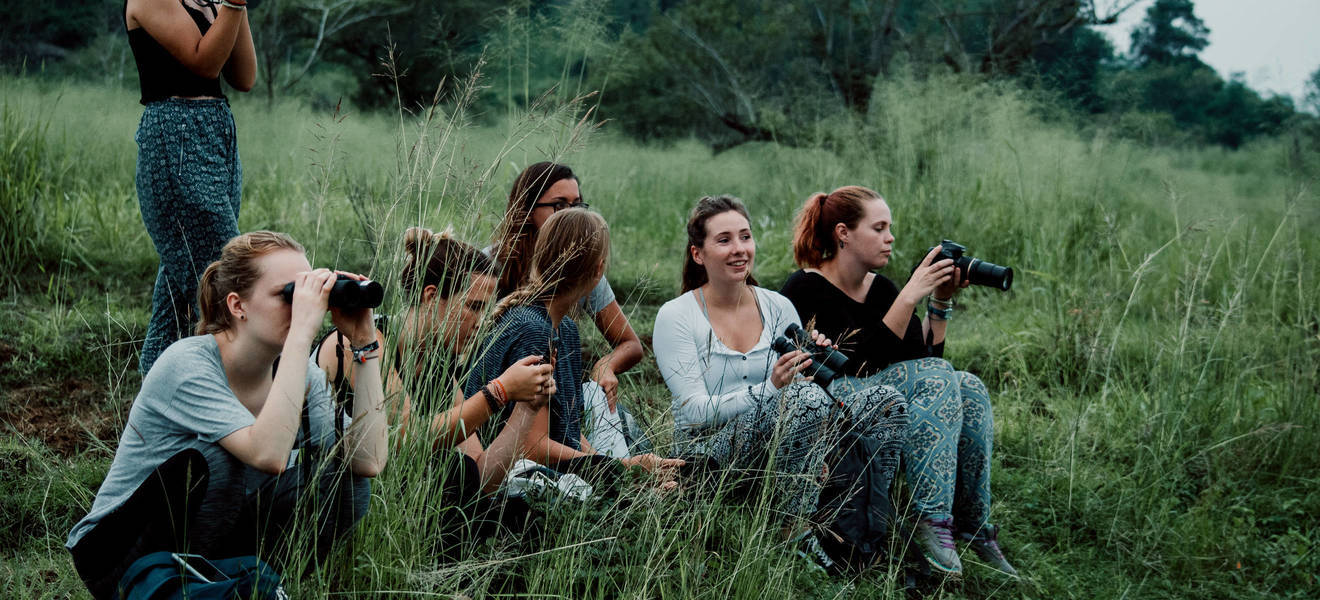
Your first day in the project
You can start working on the project the next day. You will be instructed in the individual activities and can then support the various tasks. In the evening you clean the equipment that you used in the field in the camp. After dinner you do a few more project-related tasks and can later relax with your new colleagues.
Pricing
-
2 weeks of participationbase fee€ 1.890, -
-
up to 1 week respectivelyextension week€ 490, - / week
-
from 2 weeks eachextension week€ 280, - / week
included
Services
Before departure
- Individual advice and support from our trained RGV team in Munich
- Organization including placement in the project and coordination of your stay on site
- Assistance with preparation: visa, health care, travel insurance, etc.
- Non-binding flight advice
- Travel ABC with packing list for your travel preparation
- RGV t-shirt
On site
- Orientation program with the team on site
- Support and guidance from the on-site team
- RGV 24h emergency number
- Project t-shirt to wear during on-site activities
- Airport transfer on the agreed day of arrival
- Accommodation at the job site
- Transfer from the airport to the hotel in Pinnawala and from there to the project site
- Hotel overnight in Pinnawala
- Meals: breakfast, lunch and dinner
- water, tea and coffee
After return
- Participation confirmation of your voluntary commitment
- Reflection course on your experiences abroad
- Evaluation sheet and optional feedback discussion
not included
Services
- Round trip
- Private expenses on site
- Excursions with microlight flights
- Travel and cancellation insurance
- Visa and Vaccinations
- All nights outside your agreed accommodation
- Public transport and extra transfers
- Airport transfer on departure day
Individual
Recommended additional offers
& must-haves

Would you prefer to stay in a single room? Are you vegan or do you have special requests for food? Or do you want to do some cool trips with other volunteers in your free time and explore the country?
With us, you benefit from a variety of optional additional services that you can add individually to your booking, depending on your preferences.
Cheap flights with our flight partner thanks to volunteer rates.
Would you like to receive a cheap flight offer for your stay abroad that is perfectly tailored to you? After you have successfully registered, you can have a non-binding offer created.
The excellent rates for volunteers, students and young people are a great advantage. Arrival times and flight time changes can also be sent directly to RGV upon request, so that our RGV teams in the destination countries are always informed about your arrival times.
These special tariffs give you special added value:
- maximum flexibility for rebookings and cancellations
- generous baggage allowance
- Additional discounts on one-way flights: The new volunteer tariffs include attractive discounts to reduce your financial burden on one-way flights (e.g. for stopovers, project or country combinations).
Benefit from the 4 in 1 ERGO travel insurance.
You can easily book the long-term travel protection of ERGO Reiseversicherung after you have registered. You will receive the links to this automatically after a successful registration.
The following building blocks are included:
- Health Insurance
- Comfort protection: accident, liability and interruption insurance
- Travel insurance
-
Two tools to get you started on your personal developmentPersonal development introductory courseFree of charge
Wasgamuwa National Park
Team
site
The environmental protection expert was led by his love of Sri Lanka's wildlife Chandima Fernando after his studies in the wildlife project in the national park. For more than 15 years he has been creating and leading all research projects in which volunteers are involved. As a passionate animal rights activist, Chandima is always happy that he can pass on his knowledge of research methods in nature conservation to the volunteers.
Chinthaka organizes and manages the entire volunteer program. He is the first person you meet on site and who welcomes you to the project. His enthusiasm for wildlife and research work in animal welfare brought him to the project in the early 2000s. Chinthaka works closely with farmers, families and communities. He is involved in various initiatives designed to prevent conflicts between the wild elephants and the local population.
Chandima, Chinthaka and the other employees not only train you, they also make sure that you feel comfortable in the project. They are happy to answer any questions or problems you may have. They will also give you information and tips on excursions in your free time.
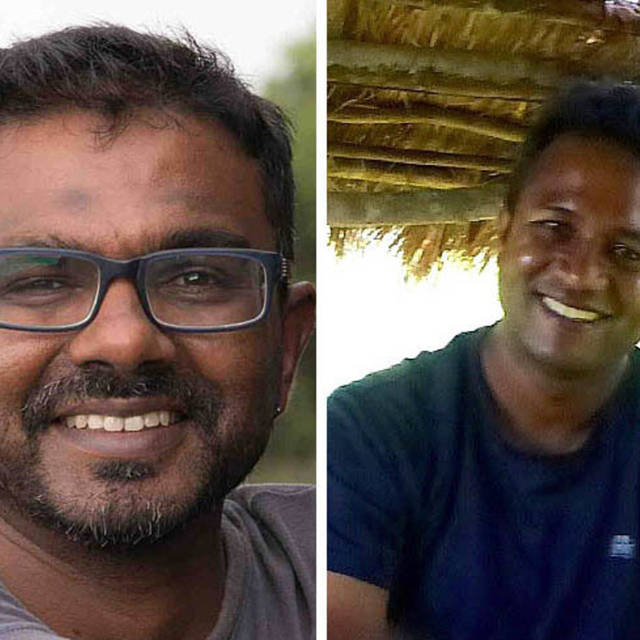
RGV
FAQ
to the project
How far in advance do I have to register?
Ideally your registration takes place at least 3-6 months before the desired departure date, But also short-term registrations are up 1-2 months before the planned departure is possible.
But it could be that your dream project is already booked. In this case we will try together to find a suitable alternative for you.
Can I travel with a friend or in a group?
Yes! On request we enable a double room if you for two with a friend or a friend, or an apartment or other suitable accommodation for groups.
We are very happy to enable our participants to go on a project and share accommodation with friends. Shared accommodation is usually possible both in the volunteer house and with the host family, although the room in the volunteer house may also be shared with other participants. In some locations there is also the option of sharing an apartment.
When registering, please always mention the person(s) traveling with you!
Can I combine projects?
Yes! You can combine projects at one location, at different locations, but also in different countries. It is also possible to combine a project with a trip. You can specify your desired combination directly when registering.
Combination options at a glance:
- Combine programs in one country
- Combine programs across countries
- Combine a program with a language course
- Combine a program with ours Adventure & Trips
There are a few things Project combinations to note: The minimum length of stay per project must be observed and you may incur additional costs for country combinations, for example for an intermediate flight.
What are the project fees used for?
Although we are a non-profit organization, there are costs associated with volunteering abroad. Find out here, why volunteering requires money and what your project fee is used for.
Which visa do I need for Sri Lanka?
You need a visa to enter Sri Lanka. You can apply for a tourist visa online. The issuance is for a stay of 30 days. An extension can also be requested online. Our on-site team will be happy to help you with this.
The following documents are required for the extension: passport photo, passport copy, copy of the return flight ticket.
What language skills do I need for the project in Sri Lanka?
Good knowledge of English is required. A Sinhala course is also recommended.
What vaccinations/ health precautions do I need?
If you are traveling from a yellow fever area, you need a yellow fever vaccination. Otherwise there are no compulsory vaccinations.
We generally recommend a consultation in a practice for travel and tropical medicine.
You can get general information about recommended health care and vaccinations online Center for Travel Medicine as well as on the side of Foreign Office.
What are the requirements for the animal welfare project?
There are no special requirements for participation. What is important is having fun working with animals and being interested in animal welfare. Good physical fitness is often an advantage.
What do I have to consider as an LGBTQ person?
Please be aware that homosexual acts are considered undesirable in many countries in Africa, Asia and Latin America and are even punishable by law in some places. In general, people who are identified as queer are often exposed to hostility.
For example, get information from Foreign Office about the exact regulations in your destination country.
Ready to volunteer in Sri Lanka? Start your adventure abroad with Rainbow Garden Village!
Rainbow Garden Village has been offering volunteer work and internships abroad since 1999. What started as a small student initiative in Ghana has now grown into an organization with over 250 projects around the world.
You can be sure that your work as a volunteer will be an unforgettable experience. Bring your commitment and your knowledge to do good locally - and at the same time benefit from the unique experiences that will promote your personal development.
Become part of our RGV community!
We look forward to you.
RGV
Your way
to the volunteer
1
Choose your volunteer project and register online.
2
We will review your application and confirm your participation.
3
Prepare for your assignment online or in our preparatory seminar in Munich.
4
Here we go! During your volunteer work, we will support you at any time with our on-site team.
More projects you too might be interested
Are you not sure yet? Think about whether a spontaneous assignment as a volunteer abroad is the right choice for you or whether you would like to Voluntary social year (FSJ) abroad want to decide.
With RGV you achieve flexible volunteer work in different countries worldwide. Maybe there is one too Internship abroad the ideal choice for you to gain valuable experience abroad.
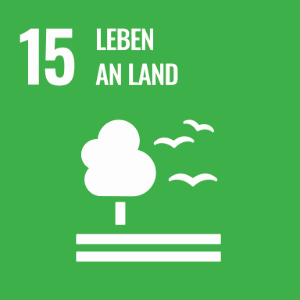
Namibia | elephants
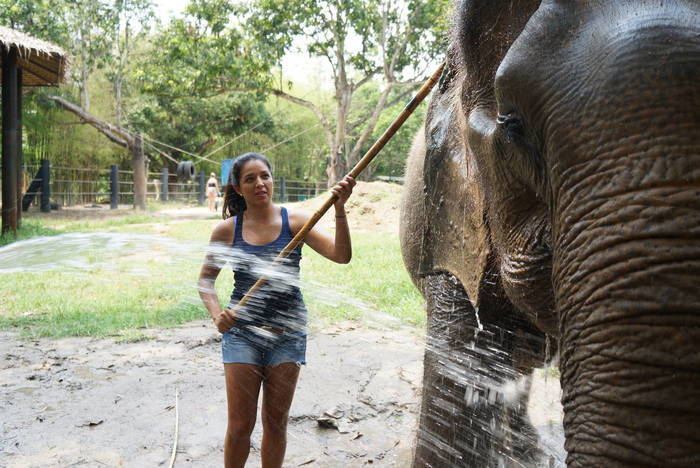

Thailand | elephants


Nepal | big cats

